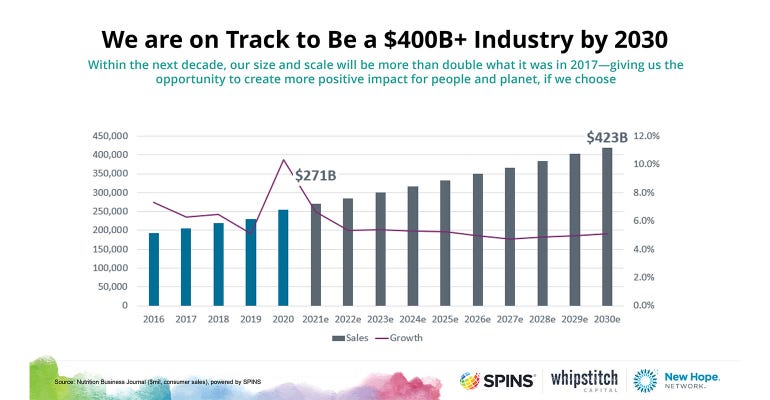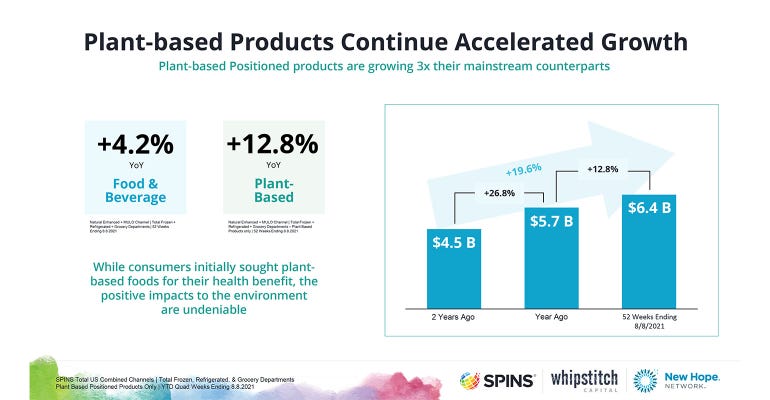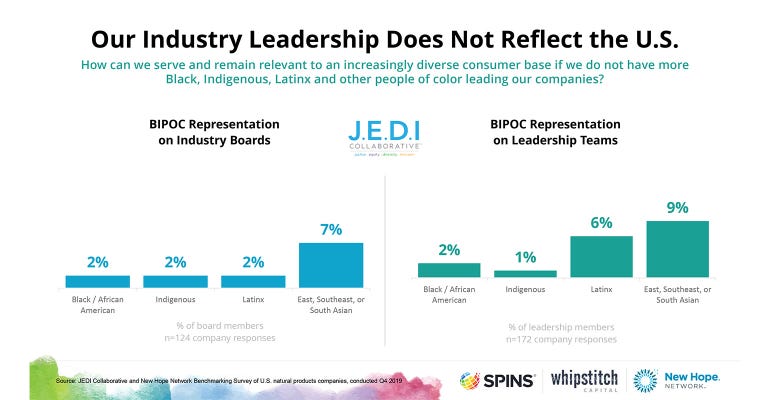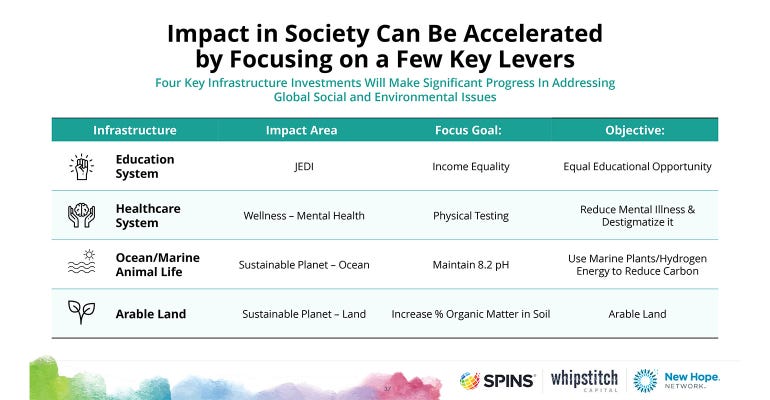
Sales across the natural and organic products industry increased dramatically during the past year.
That's no surprise, as our country and the world faced a deadly pandemic and most people became very concerned about their health.
While that growth is likely to slow down, Nutrition Business Journal predicts that sales will continue to grow around 5%-6% through 2030. That means 2020's $259 billion industry will be valued at about $423 billion in 2030, just nine years from now.
With that growth comes opportunity, though. During Thursday's keynote address, The State of Natural & Organic, three of the industry's leaders—Carlotta Mast, senior vice president of New Hope Network; Kathryn Peters, executive vice president of SPINS; and Nick McCoy, managing partner of Whipstitch Capital—highlighted the industry's accomplishments, weaknesses and possibilities.
Watch the replay on Natural Products Expo Virtual.

Sales increase surpassed pantry-loading surge
Last year was an amazing year for organic sales "despite the pandemic, or in some cases, because of it," Mast said.
"That continues to positively affect the industry today," she continued. "People tried those new brands and stuck with them, especially in the food and beverage categories."
Supplement sales also increased significantly. At the end of the year, sales totaled $56 billion, $9 billion more than Nutrition Business Journal had predicted before the pandemic.
Sales of natural and organic foods grew three times faster than sales of conventional foods, Peters pointed out. Even now, consumers are buying more natural than conventional foods because they value their health and are increasingly concerned about social responsibility and sustainability.

Plant-based products, which can be healthier for people and better for the planet, are selling three times faster than conventional food and beverages; that market reached $6.4 billion sales during the 52 weeks ending Aug. 8, a 12.8% increase from the previous year.
Clearly, the natural products industry is strong.
"We have size, we have scale, we have influence. So how does that connect with the state of our world?" Mast asked.

Natural products industry is too white
"We're seeing the growth of non-white communities across the country. They're influencing so many things: influencing the culture, influence the food that is so popular in our stores," Mast said. "It's really benefitting things like multi-cultural brands and natural and organic."
Census results released in August showed that the U.S. population is becoming less white, making up 57.8% in 2020. Of residents younger than 18, 52.7% are people of color.
The percentage of Hispanic and Asian people grew to 18.7% and 6.1%, respectively, while Black people maintained 12.1% of the population, according to The Washington Post.
"This is a huge shift for our country, and it's super-exciting," Mast continued.
However, leaders in the natural products industry are overwhelmingly white. The JEDI Collaborative and New Hope Network's 2019 survey found that just 13% of board directors are people of color, and only 17% of people on industry leadership teams are.
These numbers could determine the industry's future growth.
"How can we serve an increasingly diverse consumer base if our leadership doesn't reflect the needs and the behaviors and the desires of those consumers?" Mast said. "Our innovation just will not keep pace if we don't actively work to nurture more diverse leadership in our industry, if we're not really supporting those BIPOC-owned and -led brands in our industry."
While the JEDI Collaborative can help companies increase diversity, Mast noted that led by people of color are supporting people of color in the industry through new organizations. Project Potluck aims to help people of color build successful companies or careers in the consumer packaged goods industry. It connects CPG industry veterans of any background with people of color who are looking for mentors. The projects leaders are familiar names in natural products: Ibraheem Basir, founder and CEO of A Dozen Cousins; Arnulfo Ventura, CEO of Beanfields; and Ayeshah Abuelhiga, founder and CEO of Mason Dixie Foods.

Sales growth presents opportunities
As more consumers purchase natural and organic foods, the more opportunities exist for farmers to adopt organic practices and for the industry to influence change across the supply chain and even society.
The world's most pressing problems revolve around the Earth and people, Whipstitch's McCoy said. We need to expand our definition of infrastructure to include education, health care, arable land and the ocean, he added.
Instead of looking to the government or nonprofits to resolve problems surrounding social equity and environmental sustainability, we should invest in the solutions, he said. The population has an average of $457,317 per person to invest, while nonprofits have only $1,371 at their disposal.
"We all come in with equal opportunity, but then that changes. Education is the key to stopping that," McCoy said. Investing in education, for example, would reduce the level of poverty which, in turn, would reduce the rate of incarceration.
With a more equitable education system, more people of color would be prepared to be leaders in the consumer packaged goods industry, which then would broaden the reach of the products to meet the needs of a diverse population.
"If we could make income more equal across the population, naturally, we're going to be more equal as people," McCoy said.
 Watch the replay
Watch the replay

The Natural Products Expo East 2021 Keynote: The State of Natural and Organic is available for replay in the Natural Products Expo Virtual community platform.
Click the download button for the slides.
About the Author(s)
You May Also Like





